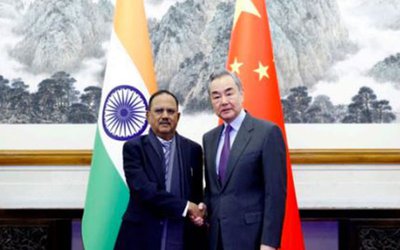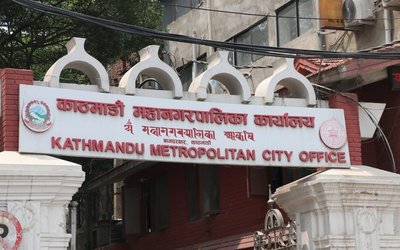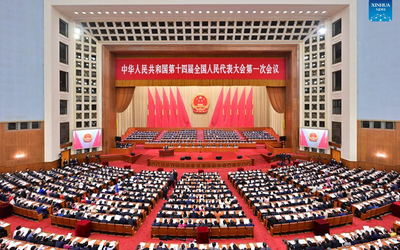The Chinese would have been completely mystified on Wednesday hearing diehard Socialist leader and former defence minister Mulayam Singh Yadav declare in Parliament that he had information about China’s plans to attack India, and that the dragon had even identified some border areas from where to launch its presumptive invasion. In fact, Yadav added, Beijing had also ordered that the flow of the Yarlung Tsangpo river be stopped — which becomes the Brahmaputra as it turns the bend and falls into India.
Prime Minister Manmohan Singh, as he prepared to fly to Moscow for talks with the Russian leadership in the Kremlin on Friday, did well to deny both preposterous claims. Delhi doesn’t believe the Chinese are planning an aggression, said the PM. Moreover, the Chinese had assured him at the highest level that they would not tamper with the flow of the Tsangpo-Brahmaputra.
- China guarantees growth amid global slowdown
As India tailspins into a recession of its own making, its insecurities are making themselves keenly felt. China remains the only real bright spot in a falling market, and among the BRICS – Brazil, Russia, India, China and South Africa – countries, India is attracting the least investment. Naturally, China is attracting the most.
Worryingly, India Inc’s soaring confidence, as it leveraged two decades of economic reforms at home, failed to make a dent in either Russia or China. Trade with Russia remains a dismal $9.6 billion, while trade with China masks the truth of the matter: at $60 billion and growing, the balance of trade in Beijing’s favour is touching $23 billion.
In fact, the common denominator in the India-Russia-China triangle is Beijing’s ability to gobble up India’s and Russia’s vast and cheap natural resources as soon as it can produce them. Russia’s eastern territories are flooded with Chinese immigrants, even threatening to upset the existing population balance.
With India too, iron ore – largely from Karnataka – remains the major item in the Indian export basket. It’s a virtual ship-to-factory transfer, direct from an Indian port to the Chinese factory floor, a 21st version of US food aid to India, which in the mid-sixties used to be disparagingly termed “ship-to-mouth” aid.
As for the lowly India-Russia business relationship, it is, in fact, a classic case of India’s disinterest in a country it disdained because it was so much easier not only to make money in the West, but also to – finally! – mingle with its upper crust. The Indian business class, steeped in Hinduism’s peculiarly hierarchical class structure, vied to be equal with the descendants of the East India Company — whether in Europe or the United States, they were all generically the same.
Russia was a failed state, Indian business declared, and turned its nose up at Russia’s lack of English-speakers (or those who did, spoke with an accent), bureaucratic rigidity, lack of transparency and a complicated legal system. Russia had lost the cold war to the mighty US, and didn’t deserve “our” investment, in terms of time, energy, culture or the even the subtleties of drinking vodka.
All of this was, and remains, true, except Indian entrepreneurs forgot one small thing: Under Vladimir Putin’s 10 years of leadership – both in front and behind president Dmitry Medvedev’s purdah – Russia’s foreign reserves have touched $600 billion, double that of India.
With China, the problem is a little different — as Mulayam Singh Yadav pointed out so touchingly in Parliament. As a former defence minister, Yadav has had access to enormous information, and there is no doubt that Beijing is building up its assets around the Indian subcontinent — whether in Myanmar, Sri Lanka, the Maldives, Nepal or Pakistan.
The Chinese are also building a blue-water navy and sending a man to the moon. Meanwhile, they have persuaded Seychelles to give them space to park warships, ostensibly to combat piracy, but perhaps a small step towards building their first foreign base.
Back home, in fact, the Chinese are said to be particularly bureaucratic about letting Indian businessmen a foot into the door. Molecule samples and marketing strategies are customarily stolen when Indian pharma companies apply for registration, and the licensing process is inordinately long. It is true that TCS has won a $100-million order to upgrade Bank of China’s software, but will India ever allow a Chinese company to enter its own so-called strategic spaces?
The Chinese argue, in their own defence, that the rules for Indian business are no different than those for other businessmen coming in from all parts of the world. Is there a kernel of truth on that score?
Of course, as the PM prepares to meet the Russian leadership in the Kremlin, he will be casting his mind on other complicated aspects of the Russian-Chinese relationship, not least vis-à-vis Pakistan. Truth is that Russia, desperate to gain influence inside Pakistan (much like the US, Russia sees it as the prime mover behind Terrorism Inc in the region), is using the Chinese to employ a pincer move to get to the powerful stakeholders in Rawalpindi-Islamabad. One way to do this is to allow the Chinese to sell to Pakistan engines that have been made and bought from Russia.
Meanwhile, there is the small matter of the ongoing democratic protests in Moscow, against what Muscovites sneeringly describe these days as “rokirovka”, the Russian word for castling in chess. It refers to the swap between Putin and Medvedev on the presidential and prime ministerial posts over the last decade.
How should the leader of the world’s largest democracy react? It would do all of us commoners a world of good if Parliament seriously debated the complex goings-on in the world — and Mr Mulayam Singh Yadav led the debate.
The author is a freelance journalist and consultant with Ficci
- SWISS SUPPORT: Construction Of A Trekking Trail In Koshi
- Dec 19, 2024
- PM OLI'S VISIT TO CHINA: BRI Agreement
- Dec 16, 2024
- RASUWAGADHI AND SANJEN: Begin Generation
- Dec 03, 2024
- NEPAL, INDIA ELECTRICITY TRADE Nepal's Advantage
- Dec 02, 2024
- PM Oli'S VISIT TO CHINA: Nepal's Dilemma
- Dec 01, 2024
















